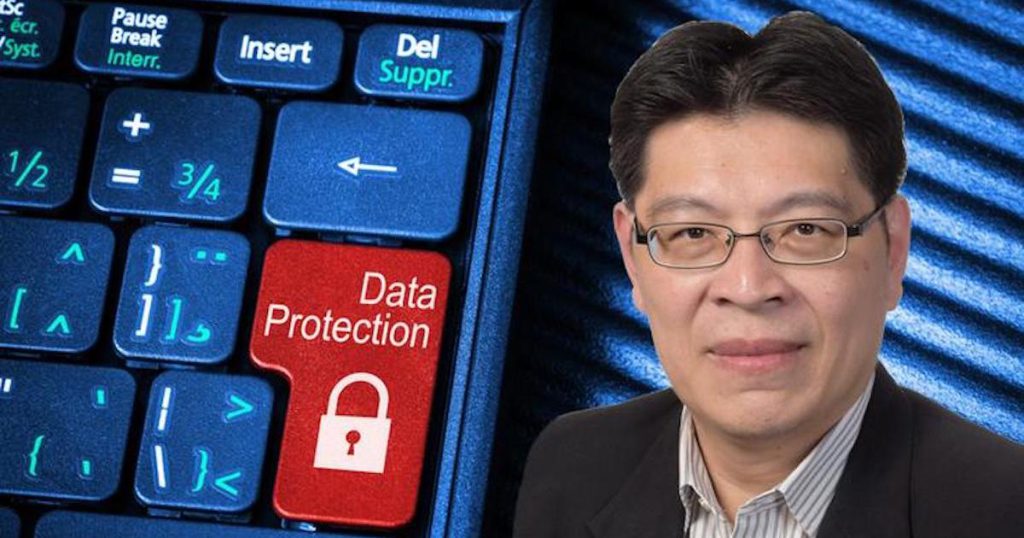Making a living in Singapore can be tough — many of us face stiff competition for jobs, and even then, the rat race never ends.
For many of us, climbing the corporate ladder to make big bucks and securing a comfortable future for ourselves is a dream. But for most, this dream would remain just that — a dream.
Edmund How, founder of OneSecure, however, walked away from such a position not once, but twice, to start up a business of his own.
Today, the company develops its own cybersecurity products and its clients include local telecommunications companies, small and medium-sized enterprises (SMEs), as well as schools.
Putting his family first
Edmund began his career as an air force regular, which is quite the respectable and stable job. After his retirement from active service, he decided to take on another job that also paid extremely well, at a reputable multinational cybersecurity and networking vendor.
The job came with multiple perks — opportunities for overseas travel, a hefty paycheck, and more.
But the price he had to pay was high as well.
My family and mental health were relegated to the back burner with long hours, and frequent travel meant less time with my family. Working in an MNC is all about chasing numbers and I couldn’t find any satisfaction other than the money. At times, it was a struggle to find the right balance between selling the right products and in achieving the numbers.
– Edmund How, CEO and founder of OneSecure
For a man like Edmund who strongly believes in creating value and delivering solutions, this was not a job that gave him any sense of fulfilment. So after eight years of service, he once again resigned his post and went back to life with his family.
And it turned out, this resignation came at an opportune moment.
Edmund recalled that a friend who ran a software company had acquired an exclusive distributorship for an anti-fraud software and wanted him to run the distributorship. This led to the birth of OneSecure, a subsidiary to distribute the software.

But it was not to be. Just three months after the company’s founding in 2008, Lehman Brothers collapsed, marking the start of the Great Recession.
OneSecure was dragged down as the economic winds turned. In a matter of months, Edmund’s investment into his new company was gone — a hefty US$100 thousand from his personal savings.
With such a large sum of money gone and now without customers to sell to, Edmund made the tough decision to have the company go dormant, in order to cut his own losses.
During this time, his wife became the sole breadwinner of the family, and Edmund took a backseat and spent time with his newborn daughter.
Making a comeback after three years
While this turn had dented his confidence, it had not dented his passion for building his company.
The three years that OneSecure remained dormant provided Edmund valuable time to consider what it was that his company would need once the economy recovered.

During this time, Edmund sought out vendors to speak to, to gain a better understanding of the industry and the products that were available on the market, and what OneSecure could offer that would allow them to break into the market.
In 2011, Edmund finally brought OneSecure back. With the economy on the mend, OneSecure rode the wave to make up for lost time, and Edmund managed to earn back the US$100,000 that he had previously lost.
With the company’s revenue growing at an impressive 50 to 70 per cent every year, investors began to take notice, and OneSecure was finally acquired in 2017. However, this investment partnership soon turned sour.
An investor was supposed to invest and build a team to offer round-the-clock cybersecurity monitoring services. A team of 10 was hired at a monthly cost of S$100,000, but the investor pulled out of the investment.
Not wanting to affect all the staff, I decided to keep the team until they find a job. Therefore, it led to company losing everything we earned over the years.
– Edmund How, CEO and founder of OneSecure
With the company once again in crisis, Edmund threw everything he had to keep the business afloat. At one point, he even resorted to using his own credit card to pay for his employees’ salaries.
Finally, a year later, the investors sold the shares back to him. With full control over the company once again, Edmund decided that change was needed — rather than remaining a distributor of cybersecurity software, OneSecure would develop itself into a Managed Securities Software Provider.
Onwards towards the future

Picking up on the realisation that cyber threats would keep evolving and that companies would be hard-pressed to keep up with new developments themselves, OneSecure would allow companies to offload this burden to them, and put OneSecure in charge of their cybersecurity.
I decided to build it based on providing real value rather than solely on making money. That worked, as we gained customers through references, but we didn’t turn a profit for the first two years as we invested all the money we got to customers to improve our technology.
– Edmund How, CEO and founder of OneSecure
And this investment was the one that finally paid off. Today, the company is trusted by many businesses and consumers — protecting them from ever-evolving cyber threats, and serving over 100 companies across Asia.
Throughout all the challenges that the company faced, Edmund believed in his vision, that he could build a company that provided real value to customers.
We have remained focused on providing quality cybersecurity monitoring solutions and I don’t foresee that we will change much. We might explore helping customers build secured cyber infrastructure when we have the right team to do it.
– Edmund How, CEO and founder of OneSecure
In addition, the company has also consistently pursued partnerships with other companies in order to add to its suite of services. Their most recent partnership was a mere three months ago — it partnered with Radware to offer additional protection against DDoS attacks, among others.
Currently, the company has offices in Malaysia and Indonesia, with headquarters in Singapore. With the success that the company is seeing, Edmund is already planning for the next steps of the company’s regional expansion, this time to Thailand and the Philippines, which could take place later this year.
Oftentimes, we hear of entrepreneurs’ success stories — of how they invested a small sum to see huge returns. Seldom do we hear the flip side of this success — of sacrifice and perseverance in the face of seemingly endless failure and challenges.
Yet, Edmund’s story reflects just this. A story of a Singaporean, turning his back from the corporate life, in order to build something that could create real value for consumers, which is indeed something that an increasingly digitised Singapore needs.
Featured Image Credit: OneSecure Asia










